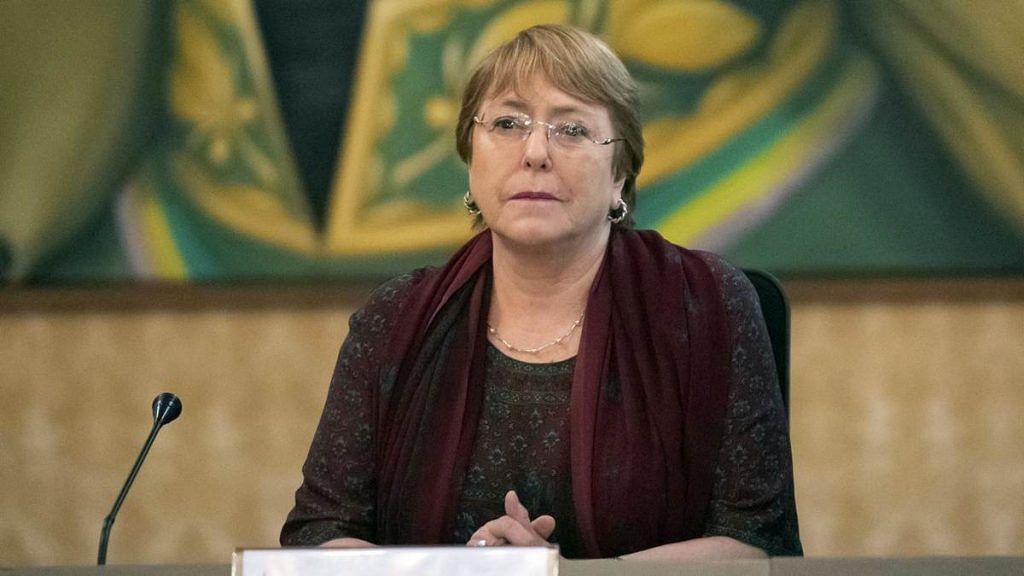New Delhi: The United Nations High Commissioner for Human Rights Michelle Bachelet has filed an Intervention Application in the Supreme Court against the contentious Citizenship Amendment Act (CAA).
In response, the external affairs ministry asserted that CAA is an “internal matter of India” and “no foreign party has any locus standi on issues pertaining to India’s sovereignty”.
“We are clear that the CAA is constitutionally valid and complies with all requirements of our constitutional values. It is reflective of our long standing national commitment in respect of human rights issues arising from the tragedy of the Partition of India,” the ministry said.
Last week, Bachelet had voiced “great concern” over the citizenship law, saying, “Indians in huge numbers, and from all communities, have expressed — in a mostly peaceful manner — their opposition to the Act, and support for the country’s long tradition of secularism.”
She had also condemned reports of “police inaction” in the face of communal attacks in Delhi, urging political leaders to prevent violence.
Shortly after the law was passed by Parliament in December 2019, the UN human rights office had described CAA as “fundamentally discriminatory in nature”, and called for its review.
Also read: Modi govt now snubbing critics in other countries too. And US, UK won’t hold back for long
Offers assistance as ‘amicus curiae’
In her application, Bachelet offered to assist the court as amicus curiae. The petition raised questions on the reasonableness and objectivity of the law, and claimed the law is not in sync with the principle of non-refoulement, which bars countries from sending asylum seekers back to countries where their lives or liberties will be threatened on account of political, racial, or other forms of persecution.
“While reducing the risk of refoulement for certain communities, the CAA unequally places other communities at such risk. Accordingly, the narrow scope of the CAA, which extends protection from return only on religious grounds and limited to the specific ethnoreligious groups, may not be sufficiently objective and reasonable in light of the broad prohibition of refoulement under international human rights law,” the petition says.
The 12-page application highlights India’s wider human rights obligations and commitment to international conventions.
In its response, the ministry also said, “India is a democratic country governed by the rule of law. We all have utmost respect for and full trust in our independent judiciary. We are confident that our sound and legally sustainable position would be vindicated by the Hon’ble Supreme Court.”
Also read: How anti-CAA protests in Meghalaya are different from those in the rest of the country
Not the first time
Last month, the United Nations Special Rapporteur on contemporary forms of racism, racial discrimination, xenophobia and related intolerance moved an intervention application before the Supreme Court. This was in the matter connected with the deportation of the Rohingya community from India.
Similar to Bachelet’s application, rapporteur E. Tendayi Achiume’s application also offered to assist the court as an amicus curiae “by offering her expertise and experience on the issue of State parties’ obligations under international law with regard to the prevention of racial discrimination”.
Special Rapporteurs are independent experts who are appointed by the United Nations Human Rights Council (HRC). Their mandate requires them to monitor, advise and report on human rights situations in specific countries (country mandates) and on certain categories of human rights violations worldwide (thematic mandates).
Although the UN Office of High Commissioner for Human Rights provides logistical assistance and personnel required to carry out specific mandates, Special Rapporteurs serve in their personal capacity.
Experts divided
Former Lok Sabha secretary general and noted constitutional expert, Subhash Kashyap told ThePrint that he did not think the Supreme Court would accept the applications.
While it is up to the Supreme Court to decide on whether to allow the intervention application, “it is entirely an internal matter, governed by domestic law”, said Kashyap.
“International law does not come into picture,” he said.
However, P.D.T. Achary, also a former Lok Sabha secretary and constitutional expert, felt that any UN body cannot be treated as a foreign country.
“It has membership all over the world. Most of the countries are members. So any body under the United Nations cannot be called a foreign body. The nature of the party is different,” he said, but added he would have to examine the issues further.
Also read: MEA summons Iranian Ambassador over foreign minister’s remarks on Delhi communal riots
‘Locus standi a non-issue’
Legal expert Prof Faizan Mustafa said locus standi in this case is a “non-issue” as courts have relaxed the requirement in public interest litigations.
“In terms of the locus of the United Nations High Commissioner for Human Rights, it was a part of their duty to promote human rights. If the court is convinced about the genuine interest of the party, which wants to come to the court about a human rights violation, the court generally entertains such applications,” he said.
On whether this application interferes in India’s domestic matters, Prof Mustafa said the scholarship of international law “largely favours the view of Lauterpacht that human rights cannot be the exclusive jurisdiction of any one state”.
“Because then any country will violate human rights of the people and say that they will not allow any other country to intervene. So, therefore, whatever happened in Rwanda, they could just say that this was their internal matter,” he said.
No issue of violation of human rights can be left to the judgment of one state, he added.
Also read: Who represents India’s Muslims? Thanks to CAA protests, we now know the answer
